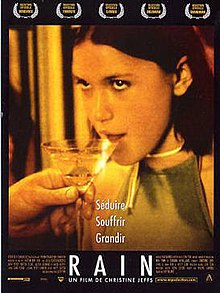Nymphet

A nymphet is a sexualized adolescent or prepubescent girl. The term was coined by Vladimir Nabokov in the novel Lolita, in which the main character, a self-described "nympholept", uses it to describe the girls to whom he was attracted.
Lolita
The archetypal nymphet is the character Lolita of Vladimir Nabokov's novel, from which the term originated. Lolita has been filmed twice: the first adaptation was made in 1962 by Stanley Kubrick, and starred James Mason, Shelley Winters, Peter Sellers and, as Lolita, Sue Lyon; and in 1997 starring Jeremy Irons and Dominique Swain. Nabokov was nominated for an Academy Award for his work on the earlier film's adapted screenplay, although little of this work reached the screen.
Faunlet
The term faunlet, also coined by Nabokov and used by the character of Humbert Humbert, is used to describe the young male counterpart of a nymphet, in the same way that the mythological fauns (or satyrs) were the counterpart of the nymphs.
Nympholept
Nabokov borrowed the term nympholept, in past times meaning "a person seized by the condition of nympholepsy", in order to describe one who could "discern" nymphets from other girls. In Humbert's own words:
- "[A nympholept is] an artist and a madman, a creature of infinite melancholy with a bubble of hot poison in [his] loins and a super-voluptuous flame permanently aglow in [his] subtle spine."
Child sexuality
Child and youth sexuality refers to sexual behavior and activity among children. This is a controversial subject in western society: sexual acts among children and/or juveniles are often considered taboo and those between children and adults are generally interpreted as child sexual abuse and responded to with therapy and/or detention. Due to the taboo surrounding youth sexuality and related legal and political constraints, little research has been conducted on the subject.
"Don't Stand So Close to Me"
"Don't Stand So Close to Me" is a famous song and hit single by the British pop group The Police. It concerns a schoolgirl's crush on her young teacher; including her obsession, teasing by friends, and the teacher's own nervousness about the situation, as well as events relating to these.
